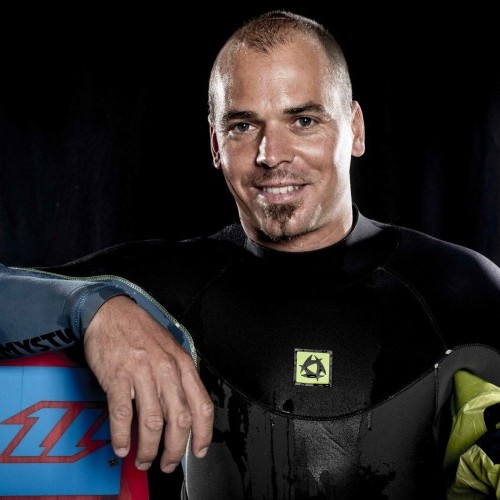
Lewis Crathern Grateful For His Life After Red Bull King Of The Air 2016 Accident
Thu 3rd Mar, 2016 @ 5:32 pm
Here it is, the full story on what happened to Lewis Crathern from the man himself and the medical team at the Netcare Blaauwberg Hospital. In a press release issued by the hospital, Lewis talks candidly about the accident and the subsequent actions of others that saved his life. He’s lucky to be alive and we are very lucky to have him still with us! Read the press release in full below to find out exactly what went down on that fateful day at the Red Bull King Of The Air 2016!
“Prompt action of fellow kitesurfers and medics saves man”
Thursday, 3 March 2016 – Lewis Crathern, a leading professional kitesurfer from the United Kingdom, says he is grateful for his life, following an accident that almost saw him drown during the recent Red Bull King of the Air Competition held at Big Bay, Blouberg, in Cape Town.
The 30-year-old, three times British kitesurfing champion says that he is particularly thankful for the two quick-thinking fellow kitesurfers, Andries Fourie from South Africa and Reno Romeu of Brazil, who pulled him to the surface and kept his head above water after he was knocked unconscious during the competition.
“The accident was partly just some bad fortune as well as a little pilot error,” smiles Crathern, who hails from Worthing, West Sussex. “I lost control and fell from approximately 18 meters, hitting my head hard when I landed. I owe my life to the two kite surfers, the medics who were on the beach, as well as Netcare Blaauwberg Hospital where I received superb medical care. I am so grateful to them all.”
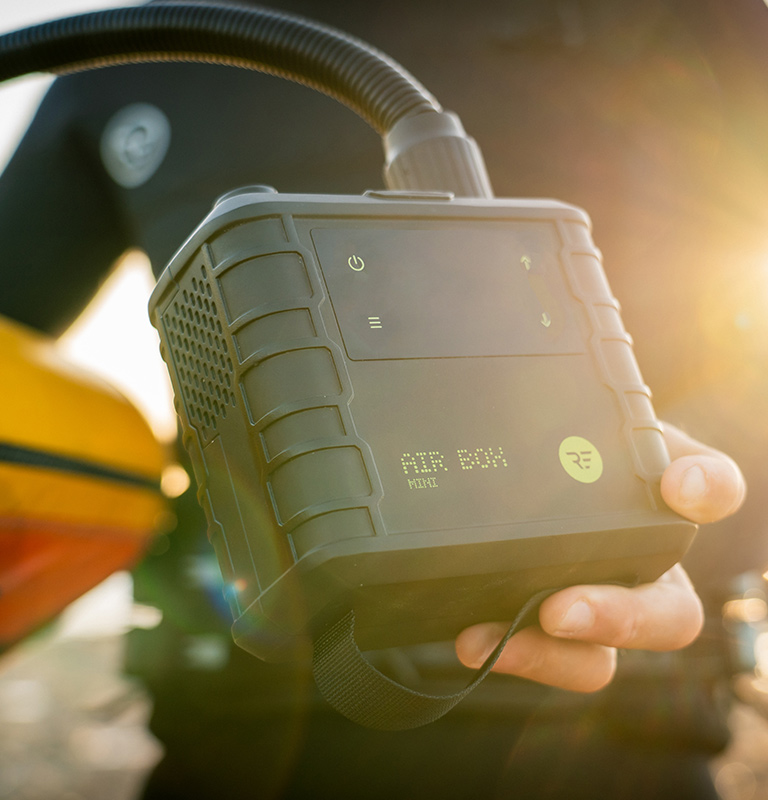
Win a Ride Engine Airbox Mini this issue in our FREE subscriber prize draw.
Crathern was injured while competing in the semi-finals of the Red Bull King of the Air competition on 7 February. He attempted a manoeuvre known as a megaloop, but stalled his kite and smashed into the surf, knocking him unconscious.
“The whole experience was surreal; I don’t recall anything about the accident, and woke up six days later in Netcare Blaauwberg Hospital, where I had been put under induced partial coma so that I could be ventilated.
“My parents were there when I woke up. They were deeply concerned about my condition and flew out from the UK to see me,” says Crathern, who is not only a world-renowned professional kitesurfer, but also a commentator and coach.
“Besides experiencing some tiredness, I am now feeling better, but there is still a lot of rehabilitation that I need to go through before I am 100% fit again. I am looking forward to heading home on 15 March. The doctors recommended I do not fly until then, and that I lay off kitesurfing for at least six weeks, but I can’t wait to get back on a board again. I’ll use this enforced break to do some kitesurfing competition commentating and mentor schoolchildren once I am back home.”
Crathern’s treating doctor, specialist physician and intensivist Dr Kim Barnard, who practises at Netcare Blaauwberg Hospital, says that the doctors and nursing staff were extremely concerned about Crathern’s condition when he was admitted. “Thanks to the excellent care provided to Mr Crathern at the hospital’s emergency department by the medical officers Dr Brett Lesley and Dr Karishma Rama as well, as the nursing team, he was promptly resuscitated and stabilised,” she adds.
Dr Barnard says that Crathern was one of two near drowning accidents from the competition admitted that same day within hours of each other. Crathern was by far the more serious of the two, and having aspirated a large amount of water into his lungs, required mechanical ventilation.
“When Mr Crathern arrived at our emergency department, he was suffering from severe hypoxia as a result of the water he aspirated into his lungs, meaning the oxygen levels in his blood were extremely low. This can potentially result in multiple organs becoming damaged, including the heart and brain. The salty water that he inhaled could also have potentially caused severe damage to his lung tissue, and permanent damage to the lungs.
“We mechanically ventilated Mr Crathern for six days in our intensive care unit where he was monitored continuously, and to date he has not suffered any complications. He made a remarkable recovery and, after a period of rehabilitation, was discharged from hospital on 19 February and came for a follow-up appointment on 3 March. We are delighted with the progress he has made and expect him to be well enough to fly home later this month.”
According to Dr Barnard, the other competitor admitted that day also required admission to the hospital’s intensive care unit (ICU), but did not require mechanical ventilation. He was observed in ICU for 72 hours, after which he was transferred to a standard ward for further 48 hours observation.
Crathern is impressed by the level of medical care he received during his hospitalisation in Cape Town. “I used to serve tea to patients at a Worthing hospital when I was a youngster, but have never had to stay overnight in hospital before, and have certainly never experienced a private hospital.”
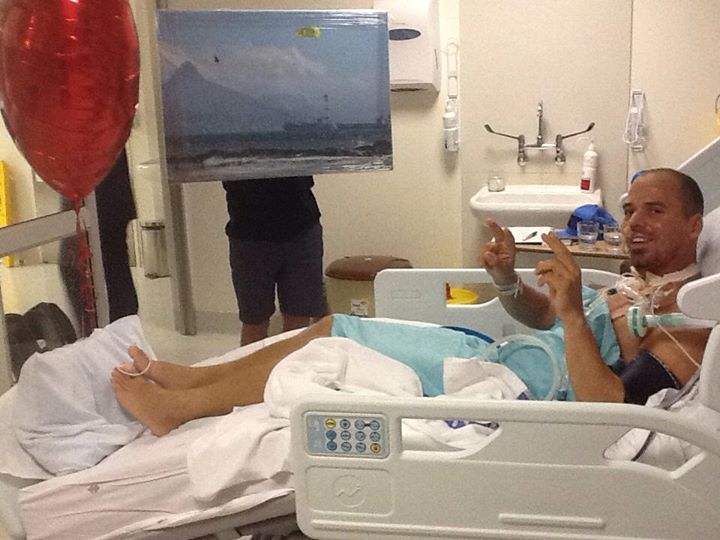
Lewis in hospital after he came out of his coma…
“I was blown away by the care I received at Netcare Blaauwberg Hospital, which was nothing short of world class. The facilities were outstanding; I always felt safe and like I was in the best hands. The staff, from the nurses and doctors to the cleaners, were warm, friendly and highly professional. I developed some wonderful relationships and would like to thank everyone involved in caring for me.”
Crathern says he is also grateful for the support shown throughout his ordeal by his parents, Sandra and Gary, girlfriend, Courtney, friends, as well as the international kiteboarding community.
The Red Bull King of the Air competition was held in Cape Town between 30 January and 14 February. Crathern says that the “Cape Doctor”, the powerful south-easterly wind so prevalent in the Western Cape at this time of the year, makes the competition a highlight on the international kitesurfing calendar.
The competitors are touted to be among the best aerial kitesurfers in the world and are not only judged on the altitude and flight distance they are able to attain, but also on the style and technical difficulty of their jumps.
“I come to Cape Town for three months of every year to kitesurf here,” adds Crathern. “I love the city; it is a fantastic kitesurfing venue and has become my second home. My girlfriend is South African and she will soon be joining me in the UK. However, returning back to Cape Town each year is essential for us.”
Crathern’s was the third kitesurfing accident case reported in Cape Town within the space of a few weeks. A kitesurfer was reportedly seriously injured in an accident three weeks before the competition.




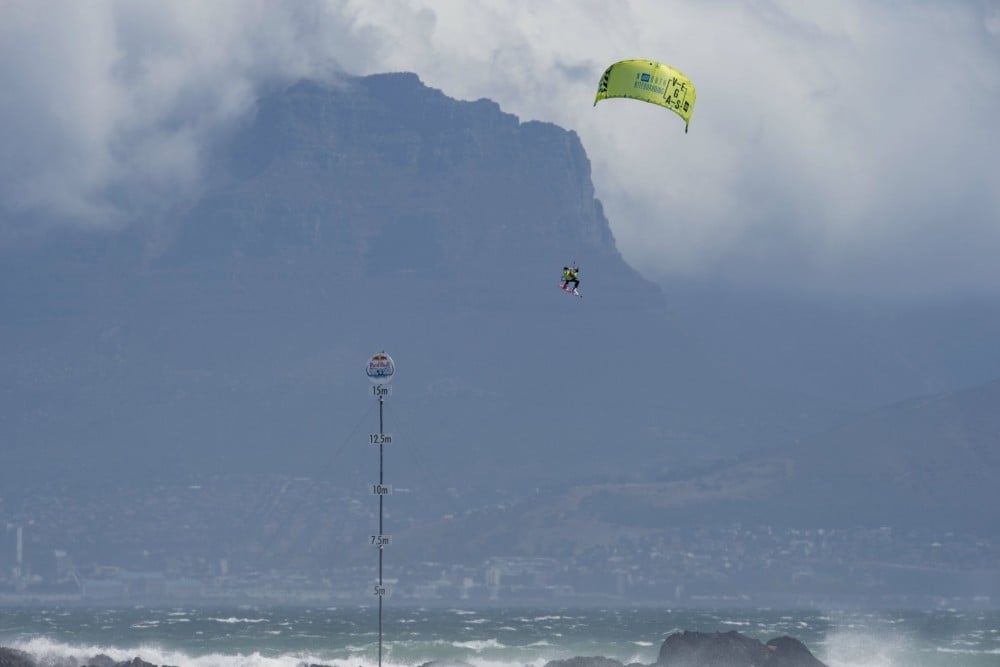

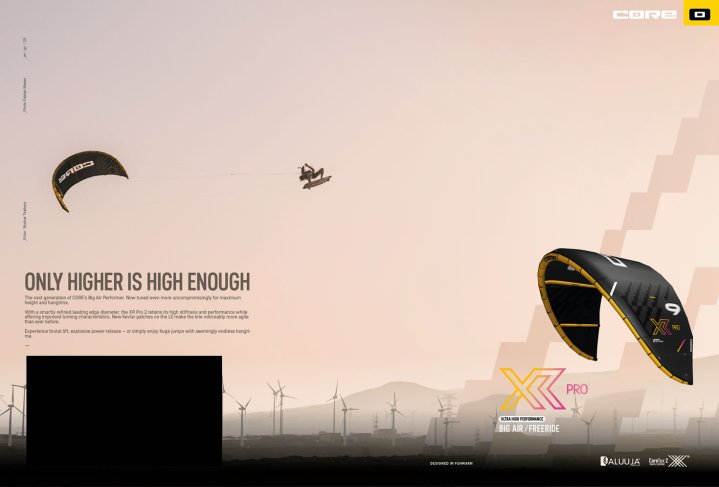

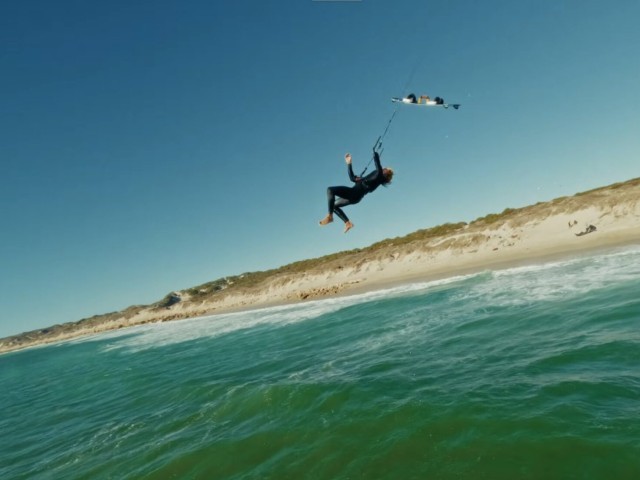


![Best Video of 2025 [Nomination] – VORTEX a Kiteboarding Film by Tom Bridge, Xander Raith and Noe Font.](https://i.ytimg.com/vi/qv3Gd_6lL7c/maxresdefault.jpg)
![Best Video of 2025 [Winner] – Ride in Peace Graham](https://i.ytimg.com/vi/WyLzdcNLCqc/maxresdefault.jpg)